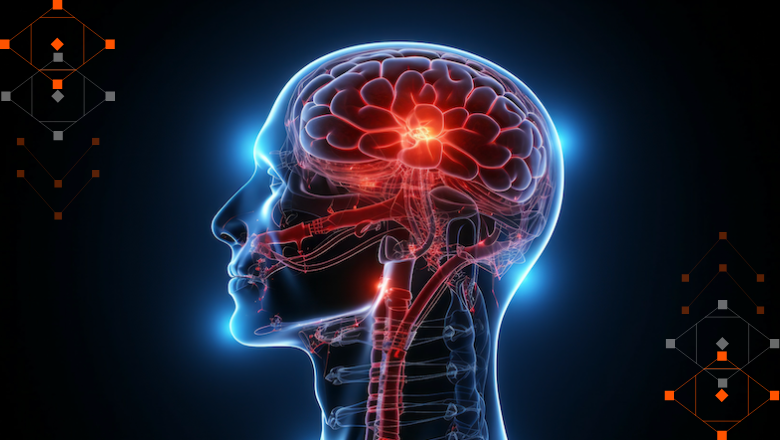Artificial Intelligence (AI) can predict whether adult patients with brain cancer will survive more than eight months after receiving radiotherapy treatment.

The use of the AI to successfully predict patient outcomes would allow clinicians to be better informed for planning the next stage of treatment and refer patients to potentially life-saving treatment quicker.
This is the first use of AI to predict short-term and long-term survivors within eight-months of radiotherapy.
The paper published recently in Neuro-Oncology shows how researchers from King's College London created a deep learning model to allow them to more reliably and accurately predict outcomes for patients with adult primary brain cancer.
Glioblastoma is a difficult to treat cancer with just one in four patients surviving more than one year after diagnosis. The researchers applied deep learning - a type of AI - to predict whether glioblastoma patients would survive the eight months after receiving radiotherapy. Eight months is typically the time taken to complete a typical course of routine chemotherapy that usually follows radiotherapy.
Currently, patients are regularly and routinely scanned to see if the chemotherapy is working. But this means that some patients have ineffective chemotherapy which wouldn't save their life and suffer through harmful side effects.
Instead, by giving an instantaneous and accurate prediction from one routine MRI scan, the AI allows doctors to identify patients who would not benefit from chemotherapy to try a different treatment or start an experimental treatment in a clinical trial.
This study was motivated by a clinically-attuned and critical research question regarding aggressive brain tumours, and delivered by leveraging cutting edge artificial intelligence. Whilst less common than other cancers, the devastation is disproportionate with a two-year survival rate of 18%.
Dr Thomas Booth, Reader in Neuroimaging, School of Biomedical Engineering & Imaging Sciences
We applied deep learning to predict whether glioblastoma patients will survive the first eight months after completing radiotherapy. The AI model showed improved performances when first trained to detect abnormalities on 10,000s of brain MRIs. This approach is intended to improve the ability to identify patients who require early second-line treatment or clinical trial enrolment, compared to those showing initial treatment response.
Alysha Chelliah, PhD researcher
Researchers trained the AI on a dataset of 10,000s of scans from all types of patients with brain cancer.
Dr Thomas Booth said: "Feedback from all patients and clinicians at the start of the study meant that we wanted to address the unmet need of improving outcomes of the large proportion of patients undergoing modified treatment - usually a shorter course and lower dose of radiotherapy if chemotherapy is not effective - as well as the minority of patients who can tolerate "optimal" treatment. Almost all previous research considers only the latter group of patients.
"We also side-stepped a thorny issue: after radiotherapy, follow-up brain scan findings are often non-specific and oncologists cannot be certain whether a treatment is working or failing.
"Instead of trying to grapple with interpreting each and every non-specific follow-up brain scan, we simply looked at one routine scan after radiotherapy and gave an accurate prediction using artificial intelligence to answer a simple question: which patients will not survive the next 8 months? The AI was able to give us an immediate and accurate prediction which means clinicians can empower patients to make choices about their treatment."
Dr Booth added: "We would be delighted if the cancer research community now uses our artificial intelligence tool to see improved outcomes for patients who won't benefit from the usual course of chemotherapy."
Commenting on how the work of Dr Booth and his team at King's College London supported people-first brain tumour research as advocated for by the charity brainstrust, Dr Helen Bulbeck, Director of Services and Policy at brainstrust said:
"This is exciting and fundamental research for people living with a glioblastoma, for two reasons. At its simplest level it demonstrates how AI can be used for patient benefit. More importantly however, it empowers patients and their caregivers to make choices about the clinical pathway and gives control back at a time when so much control has been lost. Patients will be able to make informed decisions about treatment choices and will be able to plan how they want to spend the time they have left so that they can live their best possible day, every day."
Dr Michele Afif, CEO at The Brain Tumour Charity added:
"The use of AI to evaluate and predict response to radiotherapy at a much earlier point in a patient's treatment for glioblastoma is a hugely important step in tackling this notoriously difficult to treat disease.
At The Brain Tumour Charity, we welcome this important advance which could lead to more informed discussions at an early enough point in a patient's treatment to consider meaningful alternatives, such as clinical trials.
We look forward to seeing how this exciting research progresses as it is validated for wider use as a tool to improve care for those diagnosed with a brain tumour."
The study involved a collaboration of 11 neuro-oncology centres from across the UK.








